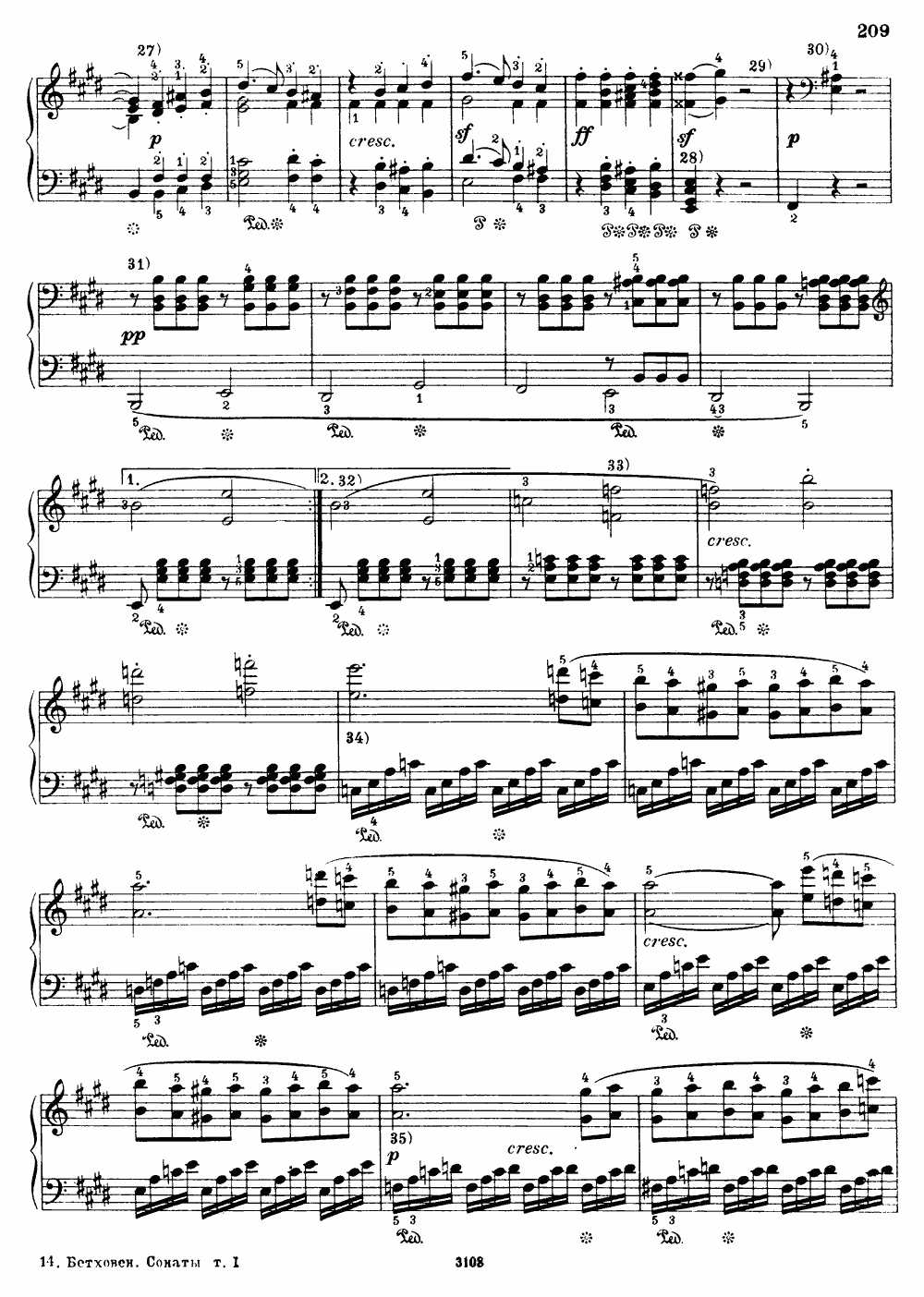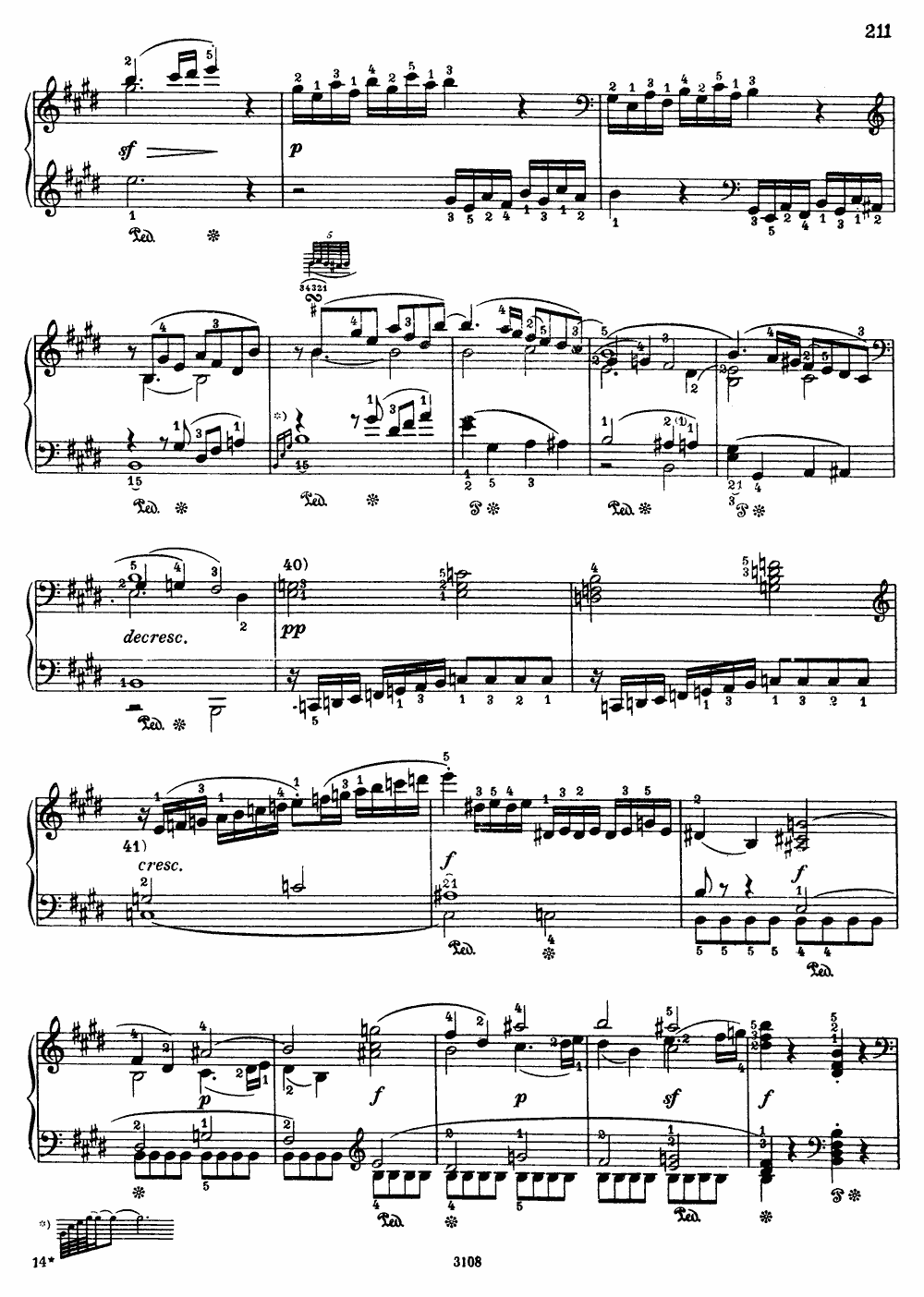

Ĭarl Czerny, Beethoven's pupil, described the first movement as "a ghost scene, where out of the far distance a plaintive ghostly voice sounds". Gramophone founder Compton Mackenzie found the title "harmless", remarking that "it is silly for austere critics to work themselves up into a state of almost hysterical rage with poor Rellstab", and adding, "what these austere critics fail to grasp is that unless the general public had responded to the suggestion of moonlight in this music Rellstab's remark would long ago have been forgotten." Donald Francis Tovey thought the title of Moonlight was appropriate for the first movement but not for the other two. Other critics have approved of the sobriquet, finding it evocative or in line with their own interpretation of the work. Many critics have objected to the subjective, romantic nature of the title "Moonlight", which has at times been called "a misleading approach to a movement with almost the character of a funeral march" and "absurd". Later in the nineteenth century, the sonata was universally known by that name. Rellstab met Beethoven in 1825, making it theoretically possible for Beethoven to have known of the moonlight comparison, though the nickname may not have arisen until later.īy the late 1830s, the name " Mondscheinsonate" was being used in German publications and "Moonlight Sonata" in English publications. In fact Rellstab made his comment about the sonata's first movement in a story called Theodor that he published in 1824: "The lake reposes in twilit moon-shimmer, muffled waves strike the dark shore gloomy wooded mountains rise and close off the holy place from the world ghostly swans glide with whispering rustles on the tide, and an Aeolian harp sends down mysterious tones of lovelorn yearning from the ruins." Rellstab made no mention of Lake Lucerne, which seems to have been Lenz's own addition. The soubriquet Mondscheinsonate, which twenty years ago made connoisseurs cry out in Germany, has no other origin." Taken literally, "twenty years" would mean the nickname had to have started after Beethoven's death. This comes from the musicologist Wilhelm von Lenz, who wrote in 1852: "Rellstab compares this work to a boat, visiting, by moonlight, the remote parts of Lake Lucerne in Switzerland. Many sources say that the nickname Moonlight Sonata arose after the German music critic and poet Ludwig Rellstab likened the effect of the first movement to that of moonlight shining upon Lake Lucerne.

"The subtitle reminds listeners that the piece, although technically a sonata, is suggestive of a free-flowing, improvised fantasia." Grove Music Online translates the Italian title as " sonata in the manner of a fantasy". The first edition of the score is headed Sonata quasi una fantasia ("sonata almost a fantasy"), the same title as that of its companion piece, Op. Beethoven wrote the Moonlight Sonata in his early thirties, after he had finished with some commissioned work there is no evidence that he was commissioned to write this sonata. The piece is one of Beethoven's most popular compositions for the piano, and it was a popular favourite even in his own day.

The name Moonlight Sonata ( German: Mondscheinsonate) grew popular later, likely after Beethoven's death. It was completed in 1801 and dedicated in 1802 to his pupil Countess Julie "Giulietta" Guicciardi. 2, is a piano sonata by Ludwig van Beethoven. 14 in C-sharp minor, marked Quasi una fantasia, Op.


 0 kommentar(er)
0 kommentar(er)
